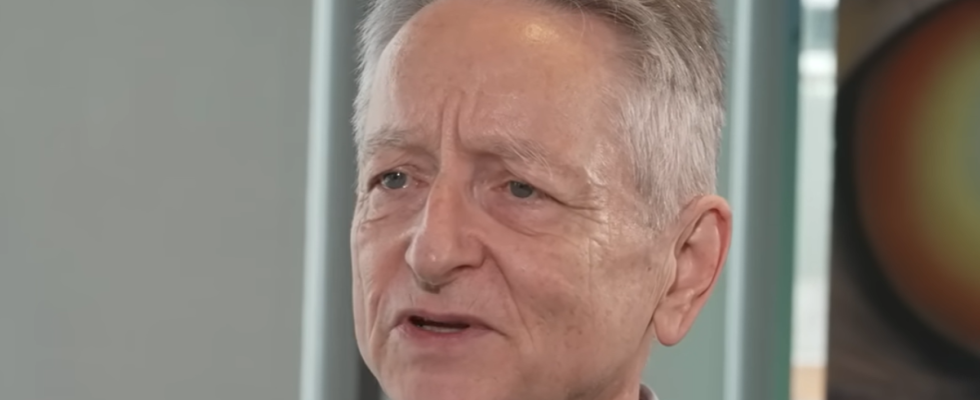OCBS Capture
Even Geoffrey Hinton, the originator of the technology used for ChatGPT, regrets his invention
ARTIFICIAL INTELLIGENCE – He is the ” godfather of AI and he left Google to be able to speak freely about his fears. Geoffrey Hinton spoke to the New York Times in an interview published this Monday, May 1. He discusses the potential risks of artificial intelligence and his regrets about his role in its design.
Geoffrey Hinton, a Briton who emigrated to Canada, provided pioneering work on neural networks that laid the foundation for artificial intelligence technology. In 2019, he received the Turing Award, a prize considered the Nobel Prize in computing, with his colleagues Yann LeCun and Yoshua Bengio.

Now that he has resigned from giant Google, Geoffrey Hinton, 75, has more room to voice his fears about the technology he helped create. “I console myself with the classic excuse: if I hadn’t done it, someone else would have done it. », he said. Because ” it’s hard to see how bad actors can be prevented from using it for evil purposes. »
Not knowing anymore what is true »
This fear, he is obviously not the first to have it since at the end of March, a thousand experts called for a ” break “ in the development of AI in an open letter. This is to enable further research into the possible consequences of generative artificial intelligence such as the ChatGPT chatbot. A few days later, another grandstand was posted by the Association for the Development of Artificial Intelligence. Here again, it was a question of the risks carried by the technology. Geoffrey Hinton did not sign either letter because he was still at Google, he explains to the New York Times.
Today, one of his main concerns relates to the photos, videos and texts created from scratch because, according to him, this could lead to “no longer being able to know what is true”.

He also fears the economic impact that artificial intelligence could have. According to a Goldman Sachs report, AI could replace 300 million jobs. “It removes the tedious tasks”but “He may well take away more than that”warns Geoffrey Hinton.
See also on The HuffPost:

